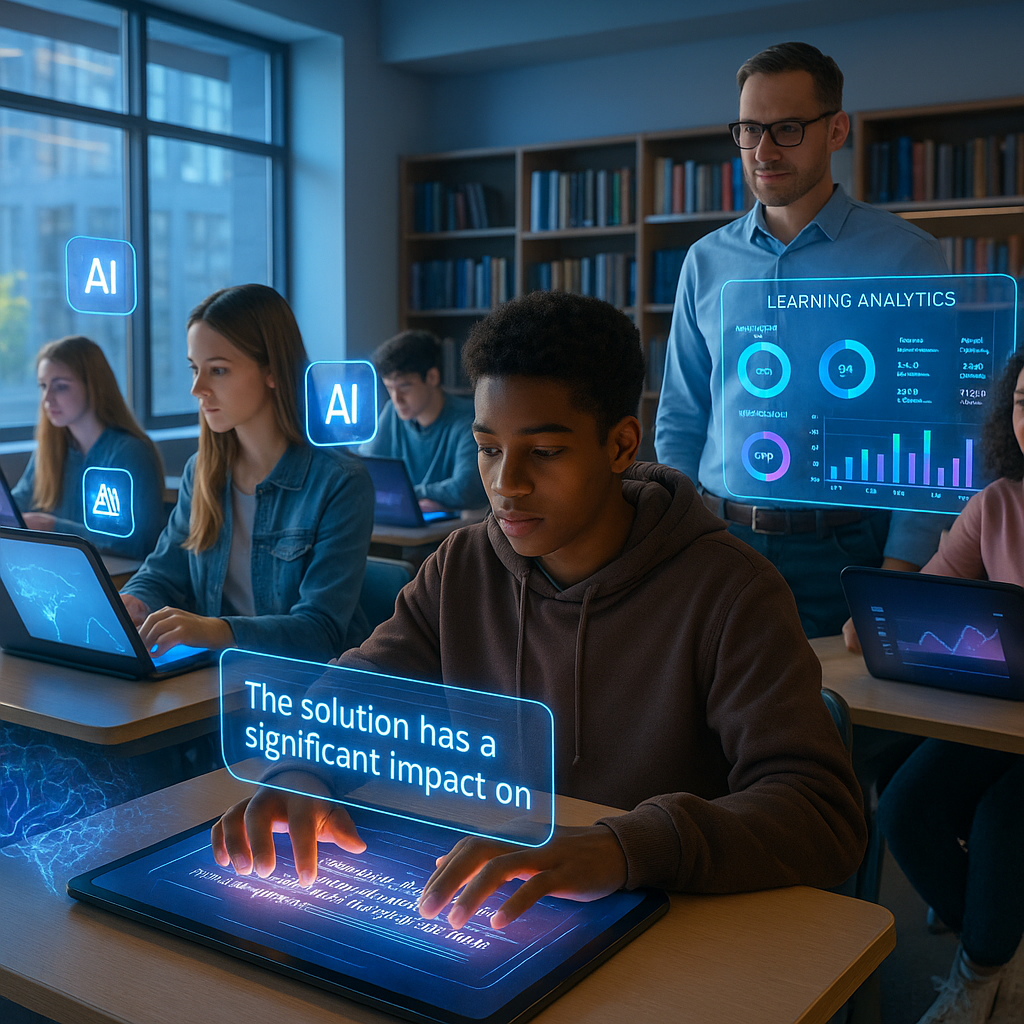Key Takeaways
- AI adoption accelerates in education: Schools worldwide have rapidly integrated generative AI tools, reshaping how students learn, research, and create.
- Creativity vs. conformity under scrutiny: Critics argue that heavy reliance on AI risks fostering generic outputs, prompting concerns about diminished student originality and critical thought.
- Advocates see potential for unlocking minds: Supporters contend AI can spur deeper inquiry, personalized learning, and cognitive expansion if applied thoughtfully.
- Ethical questions confront classrooms: The integration of AI brings new dilemmas around plagiarism, authorship, bias, and the integrity of assessment.
- Next: Policy bodies weigh guidelines: Governments and educational institutions are working to craft frameworks that balance innovation with the preservation of authentic intellectual growth.
Introduction
As generative AI tools permeate classrooms around the world in 2024, educators and students stand at a philosophical crossroads. The fusion of machine intelligence with traditional teaching is igniting global debates on originality, ethics, and the evolving nature of intellectual development.
The AI Revolution in Today’s Classrooms
Educational institutions are rapidly integrating artificial intelligence tools, shifting traditional teaching methods toward dynamic, personalized learning experiences. Recent surveys indicate that over 70% of schools in developed countries have implemented some form of AI-driven educational technology, from automated grading systems to adaptive learning platforms.
Dr. Sarah Chen, Director of Educational Technology at Stanford University, stated that AI is not just another digital tool, but represents a fundamentally different way of processing and generating knowledge. This change has generated both enthusiasm and concern among educators, who now regularly witness their students interacting with these systems.
Teachers report varied experiences with AI integration. They note increased efficiency in administrative tasks, along with new challenges in maintaining student engagement. Michael Rodriguez, a Boston high school teacher, explained that the technology allows him to focus more on individual student needs, but it also prompts questions about what constitutes authentic learning.
Stay Sharp. Stay Ahead.
Join our Telegram Channel for exclusive content, real insights,
engage with us and other members and get access to
insider updates, early news and top insights.
 Join the Channel
Join the Channel
Reshaping Traditional Learning Models
AI-powered platforms are deeply altering how students acquire and demonstrate knowledge. Adaptive learning systems now respond in real time to student performance, crafting personalized learning pathways that surpass what standardized methods could offer.
Beyond automation, educational psychologist Dr. Emma Thompson noted that AI systems are introducing new cognitive patterns into the learning process, challenging traditional understandings of how students develop and show understanding.
These developments have sparked debate about the meaning of intelligence and creativity in education. While some students report feeling more supported and confident, others voice anxiety over reliance on AI assistance.
The Double-Edged Sword of AI Assistance
AI writing tools and academic helpers have grown increasingly sophisticated, offering students new forms of support in their work. This development has generated debate about the line between assistance and academic dishonesty.
Professor James Liu of Harvard’s Graduate School of Education has observed that students using AI writing assistants demonstrated better structural clarity, but showed less originality in their arguments. Liu said there is a trend toward homogenization of student expression.
In response, educators are developing strategies to harness AI’s benefits while safeguarding authentic learning. Some use AI as a brainstorming partner, teach students to critically evaluate AI-generated content, or make AI analysis part of the creative process itself.
Impact on Critical Thinking and Creativity
AI’s presence in education raises fundamental questions about human cognition and creativity. As students increasingly engage with AI, educators are noticing shifts in how young people approach problem-solving and creative challenges.
Dr. Maya Patel, a cognitive scientist specializing in educational technology, stated that AI is not only changing what students learn, but also how they think about thinking itself. This meta-cognitive shift adds complexity to discussions surrounding AI’s role in intellectual development.
Some educators see students developing new types of creativity, collaborating with AI tools in ways that enhance human ingenuity. Still, concerns persist about students becoming too reliant on AI-generated frameworks and solutions.
For a deeper exploration of how technology-mediated learning and ongoing feedback loops influence the developing brain, see neuroplasticity & intelligent feedback.
Ethical Considerations and Future Implications
Introducing AI in education prompts deep ethical questions surrounding equity, privacy, and the broader missions of educational systems. Access to advanced AI tools remains unequal across socioeconomic groups, potentially intensifying existing disparities.
Privacy advocates express concern about data collection and algorithmic bias in educational AI. Dr. Robert Chang, an educational ethics researcher, warns that detailed digital profiles of students’ learning and cognitive development are being created. The implications for privacy and personal growth are still not fully understood.
Educators and policymakers are actively working to establish ethical frameworks that protect students while leveraging AI’s promise. Much of this conversation centers on maintaining human agency in learning as technology advances.
Discussions surrounding ethical risks, algorithmic bias, and fair data practices in AI education are increasingly borrowing lessons from other fields. For broader context on cultivating fair and inclusive training data for artificial intelligence, visit ethical dataset cultivation.
Conclusion
AI’s rise in education is forcing a fundamental reexamination of how knowledge, creativity, and critical thinking are cultivated. The relationship between students, technology, and learning itself is being reframed. As debates over originality, privacy, and equity intensify, balancing human ingenuity with algorithmic support becomes increasingly crucial. What to watch for: The evolving policies and practices that will define the next era of educational innovation.
If you’re interested in the broader philosophical questions raised by AI’s influence on originality, identity, and the boundaries between machine-generated and authentic human work, consider reading generative identity.
Stay Sharp. Stay Ahead.
Join our Telegram Channel for exclusive content, real insights,
engage with us and other members and get access to
insider updates, early news and top insights.
 Join the Channel
Join the Channel





Leave a Reply